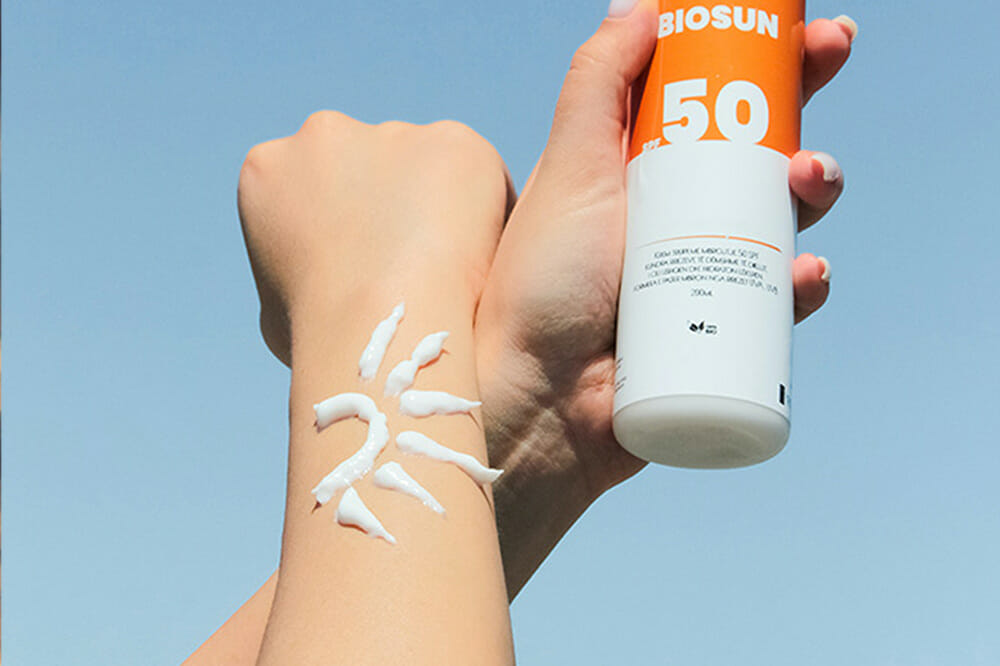Sunscreen is essential for shielding our skin from the sun’s harmful effects. Choosing between chemical and physical sunscreens can be confusing, but knowing their differences, benefits, and drawbacks will help you make an informed decision to protect your skin effectively.
Chemical Sunscreens
Chemical sunscreens work by absorbing UV rays into the skin and converting them into heat. These sunscreens contain chemical ingredients such as avobenzone, octinoxate, and oxybenzone.
Pros of Chemical Sunscreens:
- Comprehensive Protection: Chemical sunscreens provide broad-spectrum protection, shielding the skin from both UVA and UVB rays, which are responsible for sunburns and premature aging.
- Water and Sweat Resistance: They are effective at resisting water and sweat, making them an ideal choice for outdoor activities and sports.
- Lightweight and Fast-Absorbing: Chemical sunscreens are often lighter in consistency and absorb quickly, ensuring a comfortable experience on the skin.
Cons of Chemical Sunscreens:
- Skin Irritation: Some individuals, particularly those with sensitive skin, may experience skin irritation when using chemical sunscreens.
Physical Sunscreens
Physical sunscreens, also known as mineral sunscreens, work by creating a physical barrier on the skin’s surface that reflects UV rays away from the skin. They typically contain FDA-approved physical ingredients such as titanium dioxide and zinc oxide.
Pros of Physical Sunscreens:
- Gentle on Sensitive Skin: Physical sunscreens are generally well-tolerated by individuals with sensitive skin, including children.
- Moisturizing: The thicker consistency of physical sunscreens can provide additional moisturization, making them suitable for those with dry skin.
- Immediate Protection: Physical sunscreens start working as soon as they are applied to the skin, offering immediate sun protection.
Cons of Physical Sunscreens:
- Visible Appearance: Due to their formulation, physical sunscreens can be more challenging to rub in completely, potentially leaving a white cast on the skin. However, newer formulations are addressing this concern.
- Heavy Feel: Individuals with normal or oily skin may find physical sunscreens to be heavier on the skin, which can feel less comfortable.
Choosing the Right Sunscreen for You
The decision between chemical and physical sunscreens depends on your personal preferences and skin type. Both types offer effective protection against UV rays, so it’s a matter of finding what works best for you. Consider the following recommendations:
- If you have sensitive skin, children, or prefer a more natural approach, physical sunscreens may be a suitable choice.
- If you engage in water activities, sports, or have oily skin, chemical sunscreens can provide better resistance to water and sweat.
- Combining sunscreens with other sun-blocking strategies like wearing UPF clothing and seeking shade can further enhance your protection.
Safety Considerations
While recent studies have raised questions about the absorption of certain chemical sunscreen ingredients into the bloodstream, regulatory bodies such as the CDC, AAD, and FDA maintain that chemical sunscreens are safe to use. They emphasize that the benefits of sun protection far outweigh any potential risks associated with these ingredients.
Choosing the right sunscreen is essential for maintaining healthy and protected skin. Whether you opt for a chemical or physical sunscreen, the most important factor is to use it consistently and reapply as recommended. Remember, sun protection is a crucial step in your skincare routine, and combining sunscreens with other protective measures can further enhance your defense against harmful UV rays.
If you’re unsure which sunscreen is best suited for your needs, consult with your health care provider who can provide personalized recommendations based on your unique skin type and preferences.
Disclaimer: It’s important to note that these tips are not intended to replace advice from a healthcare professional. If you have concerns about your health or medical conditions, consult with your physician before making any significant changes to your routine.
Reference:
https://www.centerforsurgicaldermatology.com/should-i-use-a-chemical-or-physical-sunscreen/




